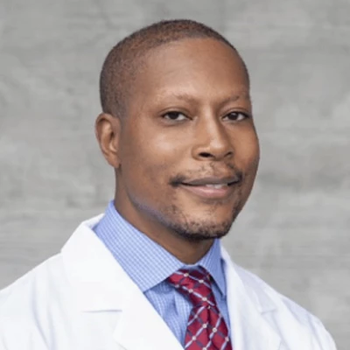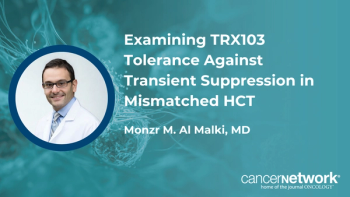
Deferred Therapy Safe, Effective in Some Mantle Cell Lymphoma Patients
Some patients with mantle cell lymphoma may safely defer treatment for their disease, and, in fact, deferral of therapy was an independent predictor of overall survival.
Some patients with mantle cell lymphoma may safely defer treatment for their disease, and, in fact, deferral of therapy was an independent predictor of overall survival, according to the results of a study
“Although specific patient data are limited in this series, we believe that the improved overall survival of patients who deferred therapy reflects predominantly a subset of patients with lower risk disease and not the adverse effects of therapy-related toxicity,” wrote Jonathon B. Cohen, MD, of Emory University in Atlanta, and colleagues. “Therefore, we support current guideline recommendations and continue to advocate immediate treatment for patients who are candidates for therapy and have symptomatic disease at the time of diagnosis.”
According to the study, the use of an aggressive treatment course can prolong overall survival in patients with mantle cell lymphoma; however, an aggressive therapeutic approach is not required in all patients with this disease. Some patients with mantle cell lymphoma are asymptomatic and have a more indolent disease course. In these patients, prior research has shown a longer overall survival among those patients who are observed for a period of time after diagnosis.
In this national cohort analysis, the researchers looked at data from 8,029 patients diagnosed with mantle cell lymphoma between 2004 and 2011 from the National Cancer Data Base. The patients were divided into a deferred therapy group, defined as more than 90 days from diagnosis to treatment, and an immediate-therapy group. There were 492 patients (6%) who received deferred therapy at a median of 121 days.
Deferral of therapy was more frequently found in patients from the Northeast and West regions (P < .0001), those who had stage I or II disease (P < .0001), and those treated at a high-volume teaching or research institution (P = .005). In contrast, those patients with B symptoms were significantly less likely to defer therapy (P < .0001). In fact, patients who did not have B symptoms were 67% more likely to have deferred therapy (odds ratio [OR], 1.67 [95% CI, 1.4–2.0]; P < .0001).
The researchers also looked at predictors of survival for this group of patients. They found that receipt of deferred therapy was an independent predictor of prolonged overall survival (hazard ratio [HR], 0.79 [95% CI, 0.7–0.9]; P = .005). Similarly, age 60 or older, treatment in the West, stage I or II disease, extranodal site of presentation, lack of B symptoms or additional comorbidities, and treatment at a high-volume institution were also independently associated with improved overall survival.
Among the group of patients who received deferred therapy, predictors of improved overall survival included male sex (OR, 0.70 [95% CI, 0.5–1.0]; P = .05), age of 60 or younger (OR, 0.48 [95% CI, 0.3–0.7]; P = .0002), and no comorbidities (OR, 0.44 [95% CI, 0.3–0.7]; P < .0001).
“These findings suggest that those patients who defer therapy may represent two populations: those who have indolent disease and are deferring therapy despite being candidates for treatment and those who may not have indolent disease but are not considered candidates for treatment because of age or other comorbidities,” the researchers wrote.
Newsletter
Stay up to date on recent advances in the multidisciplinary approach to cancer.












































